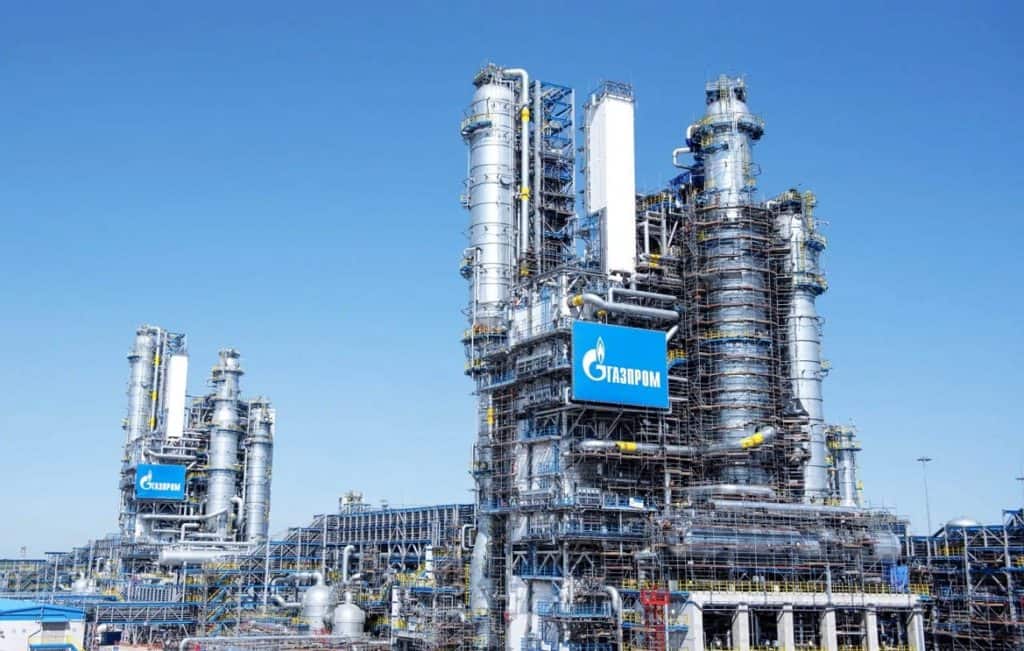World Geostrategic Insights interview with Ariel Cohen on the G7’s plan to curb Russian oil prices, Russia’s foreseeable reaction, and Europe’s current energy policy, with particular focus on the prospect of break free from Russian gas and oil.

Ariel Cohen, L.L.B., Ph.D., is a recognized authority on international security and energy policy, and the rule of law. He serves as the Founding Director at the Center for Energy, Natural Resources and Geopolitics at the Institute for the Analysis of Global Security and Principal at International Market Analysis Ltd, a political risk advisory.
Q1 – Finance ministers of the Group of 7 countries said they are moving forward with a plan to limit the price of Russian oil in an effort to depress global oil prices and limit Moscow’s capability to finance the invasion of Ukraine. The G7 is considering all options to prevent Russia from profiting from high energy prices, including blocking the transportation of Russian oil unless it is purchased at a set price or lower. However, according to some analysts, the actual implementation of this proposal faces significant obstacles, and doubts have been raised about its effectiveness in addressing soaring prices and stabilizing energy markets. What is your opinion?
A1 – Price cap would cut but not decimate Russia’s oil revenue. However, Russia is making a huge strategic mistake by cutting gas supplies, and potentially oil supplies to Europe. If it loses that market, it will be irreversible. Other suppliers would supplant Moscow. Other industries, such as nuclear power, would step in to supply power to Europe.
Response of Russia. The West’s assessment is that Russia has limited storage capacity and that halting production in Western Siberia could freeze equipment and damage oil infrastructure at a great cost to Russian companies. However, the prospects of Russia accepting far lower prices are quite low. President Vladimir Putin may bet that cutting off Russian oil will panic the market, creating a price shock that will increase the Russian oil revenue and exacerbate the ongoing energy crisis which will weaken Western resolve in countering Russian aggression in Ukraine. He is wrong, however, underestimating the Western resolve just as he misjudged Ukraine’s will to resist the Russian invasion, and the West’s ability to support Kyiv.
Will India and China, who are benefiting from heavily-discounted oil since February 24, join the plan? In theory, these two countries will be buying crude and products at even lower prices due to the price cap but India and China may be skeptical about agreeing to cumbersome monitoring and enforcement systems. Hence, the price cap fundamentally lacks impact unless G-7 can persuade other main buyers (China, India, Turkey, etc.) to sign up. However, proponents of this policy think that even though China and India might not agree to the enforcement of a price cap, it could help force down energy prices for Asia and other consumers.
Taking into consideration how Russian exports have evolved since February, imposing a maximum price on oil might lead to multiple prices in the market such as the global crude price, the capped price for Russian oil, and a shadow price for resold discounted Russian oil that would be somewhere in between. Multiple pricing as a result will create arbitrage opportunities for traders. Saudi Arabia, which wields great power in the oil markets, would object to a low-price cap for Russia as it may negatively affect Saudi exports.
According to the G7 plan on Russian oil price cap, there will be monitoring and enforcement on Russian export oil cargoes that are priced above the cap. However, similar to how market players managed to sidestep Iranian and Venezuelan oil sanctions, they will attempt to find other ways to bypass requirements for trading Russian oil. We should remember that both Iran’s and Venezuela’s economy were reduced to shambles by the sanctions. Russia will be no exception.
G7 has long term leverage because Moscow is constrained by a small tanker fleet versus the vast scale of oil exports it needs to get out. If Russia refuses to sell at the cap, it may have to shut down production which will lead to long-term costs on its oilfields and reduce budgetary revenue.
Q2 – The Biden administration predicts that Russia is unlikely to stop selling oil in the face of a price cap, yet Moscow has already shown a concrete willingness to cut off natural gas flows to Europe through pipelines it controls, and senior Russian officials say it would not sell oil products to countries participating in the price cap. What is your opinion? How do you think Putin will conduct the energy war with the West in the coming months? And for what goals?
A2 – One of the consequences of the price cap that is seen today is Russia’s hurried attempts to negotiate bilateral oil trades at massive discounts. Kremlin’s spokesman, Dmitry Peskov, told reporters on a conference call that Russia will not interact with nations that impose a price cap but instead, they will look for alternative markets. Despite the fact that Western countries are trying to hinder Moscow’s energy exports, strong oil demand from India and China hasn’t stopped the flow of cash into the Kremlin’s coffer. For instance, even when Russian oil export revenues fell in June, the country still earned $20.4 billion for the month which is 40% higher than the same period for 2021. Also, there is a possibility that Moscow could retaliate by taking actions beyond Russia’s borders before the cap takes effect.
The economic war continues on the energy front. Immediate reaction of Moscow after the G-7 group’s plan on Russian oil cap on Friday (September 2) was that Gazprom announced an indefinite shutdown of its vital Nord Stream 1 gas pipeline to Germany. Russia counts on Western governments being weak at the knees dealing with high inflation rates driven by energy crunch. At the same time, they are trying to maximize pressure onto Moscow by targeting Russian fossil fuel exports. It seems unlikely that Moscow will end its energy war with the West any time soon, but they are underestimating the Western resolve to force Russia to leave Ukraine and learn the hard lesson that aggression does not pay.
Q3 – Support for Ukraine from all European Union governments remains total and unconditional, despite the growing energy crisis in Europe. But undoubtedly life is getting worse for people, businessmen and companies in Europe, and it is likely to get even worse over the winter. For this reason, some political factions are already talking about dropping sanctions against Russia to ease energy and economic pressure on European countries. What is your opinion on Europe’s current energy policy? Do you think it will be able to break free from Russian gas and oil without running into serious energy, social and economic problems?
A3 – European infrastructure and global supply have coped, so far, with a 60% drop in Russian gas deliveries since June 2021. Total gas consumption in the first quarter decreased by 9% in comparison to the previous year and alternative supplies such as LNG from global markets have been introduced. Europe also started to import more coal, reversing the gains of several decades when coal was phased out. It is important to remember that the current situation is caused by European misguided energy policy which over-emphasized renewables while they are not ready to supply the principal energy base load due to the lack of energy storage and the intermittency problem.
The chickens of Angela Merkel-led energy policy which heavily favored Russia and killed the German nuclear industry, while cutting down the German military and making Germany impotent in the face of Russian aggression, are coming home to roost. And it’s a very cold home indeed.
There is a possibility of 70% reduction in Russian gas consumption in the short-term by accessing alternative supplies and energy sources but diversification will be challenging in the case of total shutoff from Russian sources. Bottlenecks could reduce the ability to reroute gas within Europe because of insufficient import capacity or transmission constraints which could cause shortages of 15% to 40% of annual consumption in some countries of Central and Eastern Europe. The winter may be challenging, yet, after a readjustment period of about a year – a year and a half, I see Europe surviving and thriving without Russian gas.
Economic Impact:
With natural gas an important input in production, the capacity of the economy would shrink. Findings suggest that the most vulnerable countries in Central and Eastern Europe – Hungary, Slovak Republic and Czechia – might face a risk of 40% shortage in gas consumption and their GPD will shrink up to 6%. This is very significant, and I sincerely hope it won’t happen. The impact on Austria, Germany and Italy would also be significant but it depends on resolving the existing bottlenecks at the time of shutoff and the market’s ability to adjust. The rest of the EU countries will have their GDP contract under 1% — a moderate recession.
Immediate policy priorities include eliminating constraints to establish a more integrated gas market via easing infrastructure bottlenecks, to accelerate efforts in defining and agreeing solidarity contributions (share supplies in an emergency across the EU), and to promote greater energy savings while protecting vulnerable households. Also, governments have to put more effort on securing supplies from global LNG markets and alternative sources and preparing smart gas rationing programs.
This is also the time to rethink nuclear policy; bring back nuclear reactors from the mothballs; and start building nuclear power plants of the new generation
This is a moment for Europe to unite in a decisive action to face current energy challenges as it did during the pandemic.
Ariel Cohen, L.L.B., Ph.D. – Internationally renowned expert on energy policy, Russia/Eurasia, Eastern and Central Europe, and the Middle East. He is a recognized authority on political and security risk management; economic development, investment policy; the rule of law; crime and corruption; market entry strategies; and other aspects of state/business relations.
Dr. Cohen is a Senior Fellow with the International Tax and Investment Center and Director of the Energy, Growth and Security program. He also serves as a nonresident Senior Fellow at the Atlantic Council.
He is a regular columnist for Forbes, Newsweek, The National Interest, and The Atlanticist, and has written numerous guest columns for the New York Times, International Herald Tribune, Christian Science Monitor, the Washington Post, The Wall Street Journal, The Washington Times, and National Review Online. He is widely published in Europe and the Middle East. Dr. Cohen also regularly appears on CNN, NBC, CBS, FOX, C-SPAN, BBC-TV, Al Jazeera and Bloomberg.
Dr. Cohen is the Founding Principal of International Market Analysis, an advisory firm. The firm’s consulting practice spans many industries, including energy and natural resources, defense, finance, telecommunications, and transportation. Dr. Cohen has an L.L.B from Bar-Ilan University Law School in Israel and received an M.A. in Law and Diplomacy and Ph.D. from the Fletcher School of Law and Diplomacy at Tufts University.







